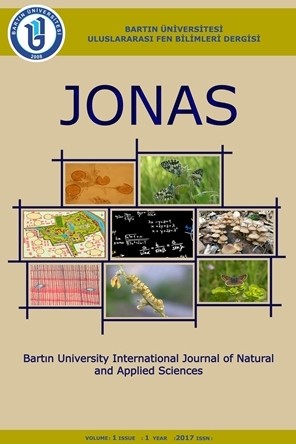FUNDING STATUS OF SMALL SCALE POULTRY AGRIBUSINESS FIRMS AND THE NEED FOR STRATEGIC BAILOUT MECHANISMS
FUNDING STATUS OF SMALL SCALE POULTRY AGRIBUSINESS FIRMS AND THE NEED FOR STRATEGIC BAILOUT MECHANISMS
fund security, small scale poultry bailout mechanism,
___
- 1. Achoja, F.O. (2011). Growth and survival of small scale Agribusiness firms in Delta State, Nigeria in Agricultura Et Subtropica vol.44(3)
- 2. Adjan, O.D. (2009). Estimation of Fund Security Status of Small Scale Poultry Fanners in Ughelli- North L.G.A of Delta State. Unpublished B. Agric project work, Department of Agricultural Economics, Delta State University, Asaba Campus. Pp.2-4.
- 3. Akanni, R.A. (2007). Effect of Microfinance on Small Scale Poultry Business in South Western Nigeria, Emirate Journal of food and Agriculture 19(20).
- 4. Bamire, A.S. & Ola, A.O. (2004). Determinants of Poultry Manure use in small-holder land Management Decision in the Rain Forest Zone of Osun State, Nigeria, The Ogun Journal of Agricultural Sciences, 3(1) pp 1-12.
- 5. Oboth, G.A.T. (2003). Financing Poultry Production in Nigeria; The Role of Commercial Banks, pp37 Ogun State: Poultry Association of Nigeria.
- 6. Ojo, S.O. (2003). Productivity and Technical Efficiency of Poultry Egg Production in Nigeria, International Journal of Poultry Sciences, 92(6): 459-464.
- 7. Oluboyode, A. (2007). Working Capital and Liquidity Position, The Nigerian Accounts 40(3).
- 8. Oroke, O.S. (2008). Economic Analysis of Financing poultry farms in Delta Central Agricultures Zone of Delta State. An unpublished B.Agric project work. Department of Agricultural Economics, Delta State University, Asaba Campus.
- 9. Prindyck, B. & Rubinfed, D. (1981). Econometric Model and Economic Forecasts, 2nd Edition, New York McGraw Hill Book Company.
- 10. Von Blockland, P.J. (2003). Introducing farm Business Analysis 1, IFAS Extension Circular 655, university of Florida, U.S.A, pp. 1-9.
- Yayın Aralığı: Yılda 2 Sayı
- Başlangıç: 2017
- Yayıncı: Bartın Üniversitesi
Bulent CENGİZ, Durmuş Ali TEKDAMAR, Gamze SEÇKİN
KIZILÇAMDA (Pinus brutia Ten.) FİDAN TİPLERİNİN MORFOLOJİK KARAKTERLERE ETKİSİ
Halil Barış ÖZEL, Cengiz YÜCEDAĞ, Nebi BİLİR, Zafer ÖLMEZ, Volkan AYDINHAN
ATÇA’DAKİ PEYZAJI BİÇİMLENDİREN PLANLI KENTSEL GELİŞİM ÜZERİNE İRDELEMELER
Selma ÇELİKYAY, Tuğçe YURTKULU
MAKİNELERDE SIKIŞMA VE DÜŞME ŞEKLİNDE GERÇEKLEŞMİŞ ÖLÜMLÜ İŞ KAZALARIN ANALİZİ
BARTIN İLİ MERA ISLAH ÇALIŞMALARINDA KULLANILAN YEM BİTKİLERİ VE GENEL ÖZELLİKLERİ
